“Simply put, we are facing global climate changes that affect us all and we feel the need to join our voice with those calling for greater action.” This is how Sustainability Director Peter Stedman explains Chiquita’s focus on creating sustainable change. One of the ways this takes shape is through the implementation of science-based targets.
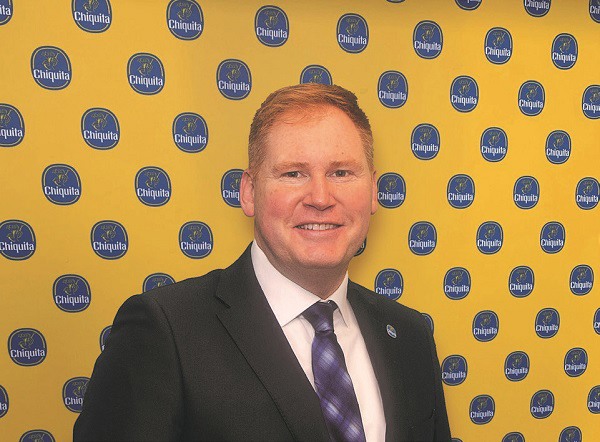
Peter Stedman
“Earlier this year we announced our ‘30by30’ Carbon Reduction programme, a major initiative that aims to reduce carbon emissions across our operations by 30 percent by the end of 2030. Chiquita has become the first global fruit company to put in place an emissions reduction strategy that is validated by the Science Based Targets initiative (SBTi).” Peter explains that this extends throughout the entire supply chain that will have set their own reduction strategies by 2025. The ‘30by30’ target will result in a removal of 30.000 tons of carbon dioxide. “The really big source of our emissions is nitrous oxide from fertilizer. So, we are left we the very interesting challenge on how to reduce carbon emissions without compromising on yield and quality of bananas.”
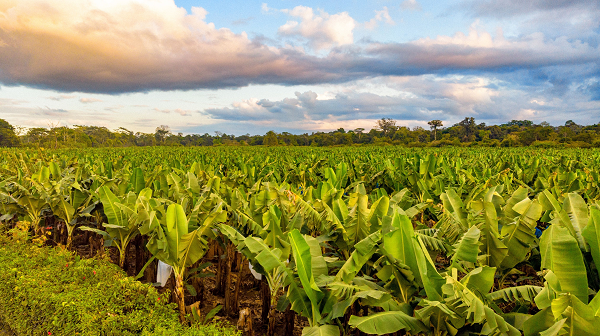
Precious
Chiquita aims to define by the end of 2022 what will be trialled in terms of alternatives for the use of fertilizer. The banana producer is looking into a combination of different nutrition regimes which have elements of sustainable agricultural practices as well as the use of technologies to inhibit the release of nitrous oxide from fertilizer. Tests will run between 2023 and 2026. “These will be random controlled trials in all four the of our operating countries. We are going to do this properly. If we are going to make such a big change, we want to be fairly sure of what the implications of that change will be.” Peter expects technology to play a key role in that process. “It will be guiding our actions, because every grain of fertilizer is not just expensive, but precious in a carbon sense.” Chiquita aims to be rolling out the techniques of choice across the farms by 2027 so that by 2029 measurements can start.
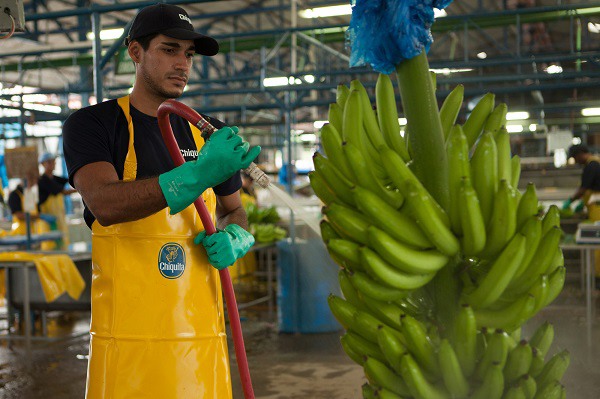
Renewable energy
Another focus is renewable energy, specifically in Honduras and Guatemala. The banana producer sees good opportunities around solar power and anaerobic digesters as a source of energy. “We are developing a capital plan to support the reduction, always thinking where we need to get to. Sometimes opportunities surpass that because there is a basic business case for doing so. If we can crack those two, we are there. 2030 gives us time to do it properly.” Peter mentions the advantage of a family company where it comes to a long-term view.
“We are taking a very long-term view, it’s not about quarterly results.” Despite the fact that it will be a lengthy process, Peter remains positive. “It is not a doomed view; we can do something, and we will do something.” In that process he sees a role for the whole sector.
“The more the industry is moving forward with this and the more collaboration there is, the better. Because it is affecting everybody.” And because it is affecting everybody, Chiquita wants the consumer on board too. The sustainability director thinks that offering value is the key to that. “The challenge for us is to make sure that we take the customer with us by giving them every reason to continue to support the brand. Ultimately we have no control over the price that the consumer pays in the retail environment. We can only make sure that customers value what is in front of them.”
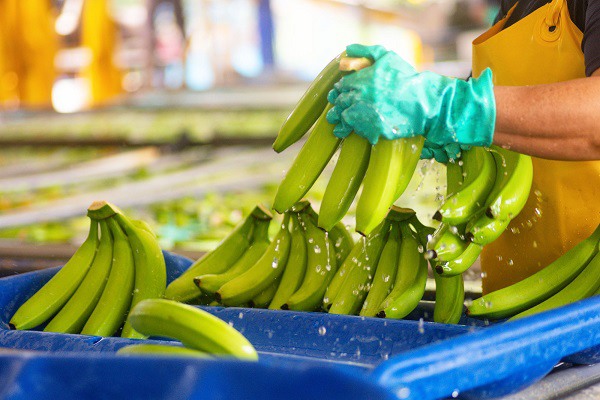
Change
The need for change is becoming increasingly clear. Peter concludes that while different regions and countries have slightly varying weather systems, Chiquita is now seeing a change is these traditional patterns. “Generally speaking, we have seen a hotter and dryer climate in the banana regions where we are growing. The important thing is recognizing that, monitoring the impact of it, and coming up with mitigating strategies. That will give us clues to where we should be going and how agriculture is developing in that place over the next 30 years.”
Peter can see benefits coming from climate change as well. “It is going to be dryer and generally a dryer climate inhibits some of the pests and diseases.” However, the temperature change is not the only concern, extreme weather events are impacting the sector increasingly, observes the sustainability director. He mentions that following the hurricanes Eta and Iota in 2020 in Honduras and Guatemala it might still take more than a year to replant all that was lost. “A significant proportion of our production was very badly affected.”
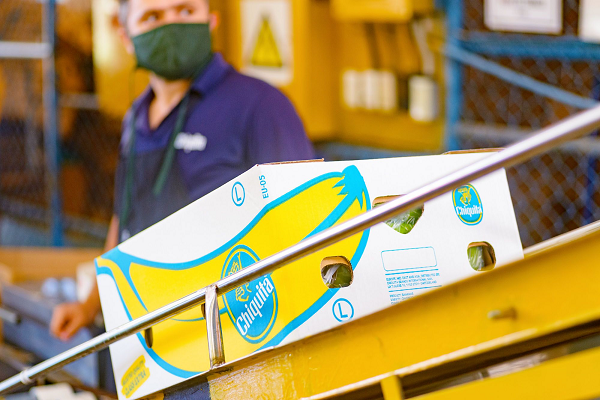
Minimizing impact
For Chiquita it is clear that the world requires sustainably grown high yielding production that ensures no more clearing out rainforests or drying out wetlands. Although Peter thinks there is much to be learned from organic production systems, he is not convinced a strictly organic production method is the only way forward. “I don’t know that conventional agricultural has necessarily harnessed the full power of nature yet. Unfortunately, we cannot produce the world’s supply of food organically, but we can be more cognisant of the natural system and work ways of making sure that it is working in our favour and that we are minimising our impact on the broader environment.”
From Chiquita carbon footprint calculations, it appears that a Chiquita banana – which has already realised a CO2 reduction of 29 percent since 2012 – actually has a lower footprint than an organic banana.
